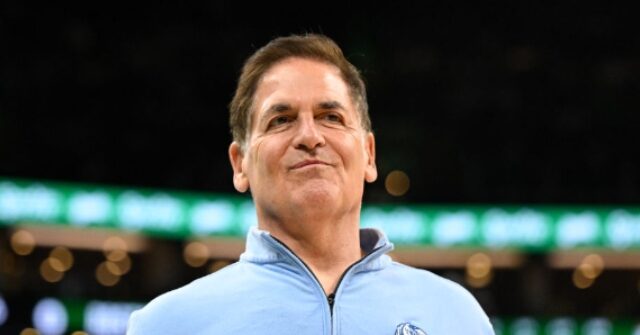Mark Cuban, the minority owner of the Dallas Mavericks, has found himself under scrutiny for his defense of the NBA’s financial connections with China, a country widely criticized for egregious human rights violations, particularly against the Uyghur Muslim population in Xinjiang. Cuban faced questioning from Charles Flint, a former chief of staff to Republican Senator Marsha Blackburn, on social media platform X, concerning the NBA’s establishment of basketball training camps in an area known for severe repression and alleged genocidal actions against the Uyghurs. Flint pressed for deeper accountability, urging Cuban to confront NBA Commissioner Adam Silver about what he perceived as the league’s ongoing silence on these critical issues.
In response to Flint’s inquiries, Cuban appeared to deflect the discussion about human rights issues directly linked to the NBA’s operations in China. He reiterated his stance against human rights violations but framed the NBA’s economic dealings with China as a straightforward business transaction. Cuban declared, “I’m okay with that,” emphasizing that the NBA exports content to China and receives compensation in return. This line of reasoning has raised flags for many observers who argue that financial engagements with a regime known for its oppressive practices could implicitly endorse those practices.
Cuban’s defense of the NBA’s relationship with China has been a recurring theme in his comments over the years, often dismissing criticisms as concerns about the league engaging in commerce. Despite acknowledging that human rights violations are wrong, his repeated statements that “China is our customer” reveal a reluctance to confront the ethical implications of financial ties with a state accused of violating fundamental human rights. This viewpoint has been met with criticism, especially as the NBA’s dealings with China amount to billions of dollars, which raises questions about whether such relationships inadvertently enable further abuses.
Flint’s critique extended beyond Cuban’s statements, warning that his non-committal responses reflect how high-level politicians, such as Vice President Kamala Harris, might approach similar complex relationships with authoritarian regimes. He suggested that Cuban’s readiness to defend the NBA’s relationship with China could signal a troubling lack of accountability in American leadership when dealing with Beijing. Given that Cuban serves as a significant economic surrogate for Harris, Flint’s implications hint at concerns about future diplomatic engagements under her administration.
Despite Cuban’s assertions, critics argue that his support for the NBA’s financial commitments to China contradicts his vocal opposition to the country’s human rights violations. This tension raises broader questions about the responsibility of American corporations operating in foreign markets, particularly in nations with dubious human rights records. The complexities of engaging with China, both economically and ethically, continue to surface as more stakeholders, including players, fans, and policymakers, become increasingly aware of the implications of these business relationships.
In summary, Cuban’s defense of the NBA’s connections to China highlights the difficult balance between commerce and ethics in a globalized economy. Critics, including Flint, emphasize the need for accountability in such relationships, particularly given the human rights situation in China. While Cuban remains steadfast in his business-oriented approach, the ongoing scrutiny suggests that discussions around corporate responsibility and human rights will only intensify as more voices call for a reevaluation of how American entities engage with regimes known for their abuses.

